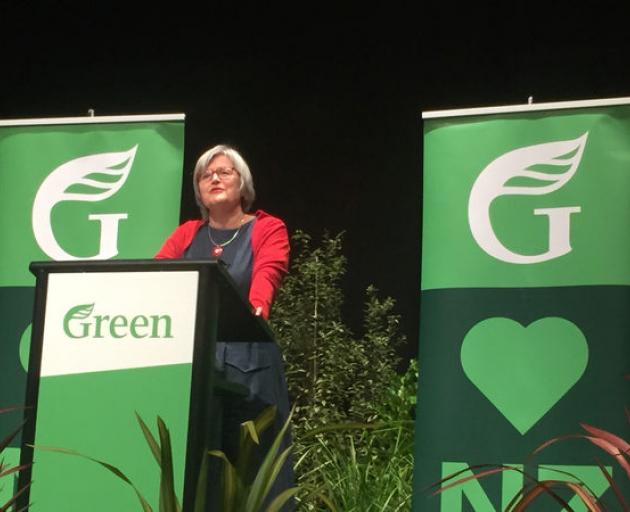
The Greens are tackling the issue of waste on day two of the party's annual conference, and are set to get tougher on those dumping tyres and lithium batteries.
They're also looking at making all of the country's landfills pay a levy.
Green MP and Associate Minister for the Environment, Eugenie Sage, this morning announced a new work programme on waste which has been signed off by Cabinet.
She revealed the programme of changes to the Waste Minimisation Act to party faithful in Palmerston North.
"It's not a matter of recycling the law - it's just time to take it off the shelf and start using it properly," she said.
The goal of the new work programme is to reduce the amount of rubbish going to landfill in New Zealand, as the projectory of waste going into to landfills increases worldwide.
Ms Sage said New Zealand had been left "woefully unprepared" for the impact of China's decision to close its borders to the world's waste.
"We're at a tipping point - the point where we need to stop so much going to the tip," she said.
She wants to introduce mandatory - and voluntary - product stewardship schemes for waste like vehicle tyres, agrichemicals, synthetic greenhouse gases and e-waste, starting with lithium batteries.
It means companies could have to fork out and pay to have this sort of rubbish collected and recycled.
The Greens are also looking at expanding the waste disposal levy to apply to more than 400 more landfills.
Currently only 11 percent of landfills are covered by the $10 levy.
Ms Sage said a big part of the work will be increasing the country's local processing capacity for recyclables.
They will have technical experts identifying priority sectors where waste can be significantly reduced and where change can be made in the overall supply chain.
The work programme also means landfill operators will now be required to report on the composition and quality of waste, and councils and the private sector will also contribute to better monitoring the country's waste data.











